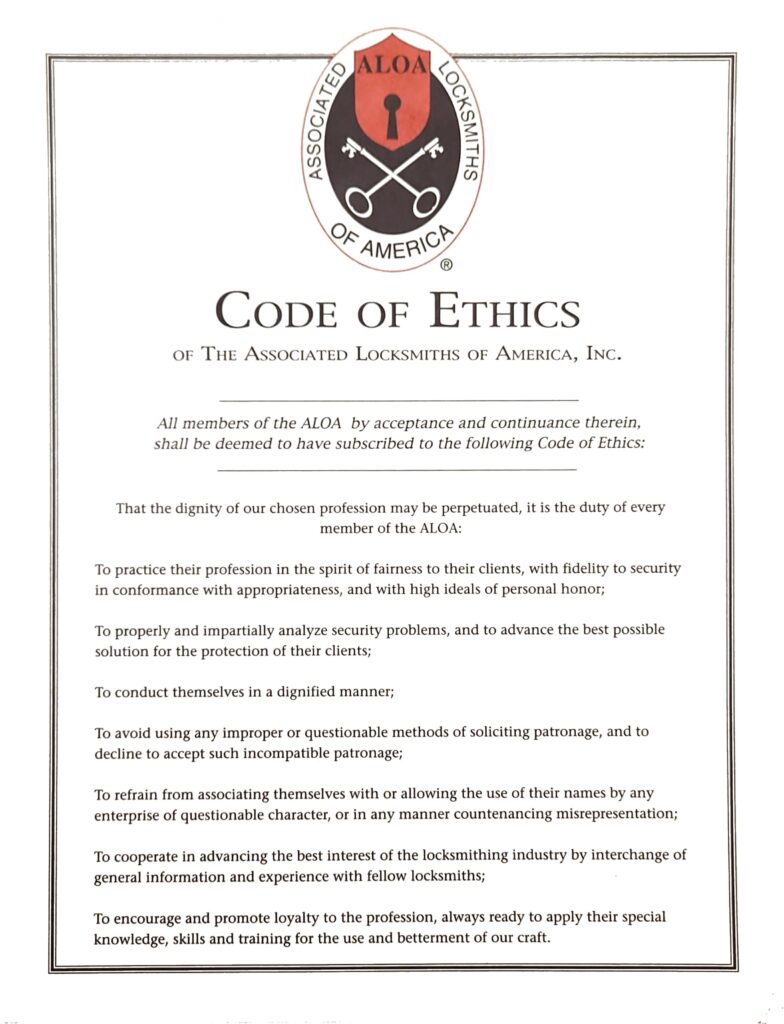
Properly Trained:
Traditionally, apprenticeships and on-the-job training programs have been the primary method of learning locksmithing skills. Although there are a few locksmithing schools that apprentices can attend, trainees typically work with experienced locksmiths until they have mastered the necessary skills. In some on-the-job training programs, employees attend and receive certified classroom instruction coupled with practical hands-on training. The length of time necessary to complete on-the-job training ranges from one to four years, depending on the level of expertise required for a given sector of the profession. Continuing education for the locksmith is provided by seminars and classes presented by lock manufacturers, locksmithing schools, and locksmith associations.
Bonded:
Because the nature of the Locksmith industry has to do with security, customers should look for a locksmith who is trustworthy in work ethic and reputation. Being bonded tells customers that their best interests and the protection of their property are not only assured but also insured. As a customer looking for a locksmith, you want to find one who holds a surety bond certificate from a reputable insurance or bonding company.
Unfortunately, there are many in Florida that advertise as “locksmiths” but do not possess a registered business, a surety bond, or the required knowledge and moral character to serve the public in such an important capacity. In recent years, many local sting operations have been conducted exposing these dirt-bags, yet due to the demand, they still keep showing up defrauding customers, and tarnishing the industry. The customer has all the power from the start of the conversation, just ask a few questions to expose the fraudulent “locksmiths” and then, hire a professional, and you’ll be glad you did!
Additional Reasons:
~Years of Hands-On Experience
~Technical Training
~Insured
~Positive Local Reputation
~Honest ~ Trustworthy ~ Reliable
Code of Ethics

